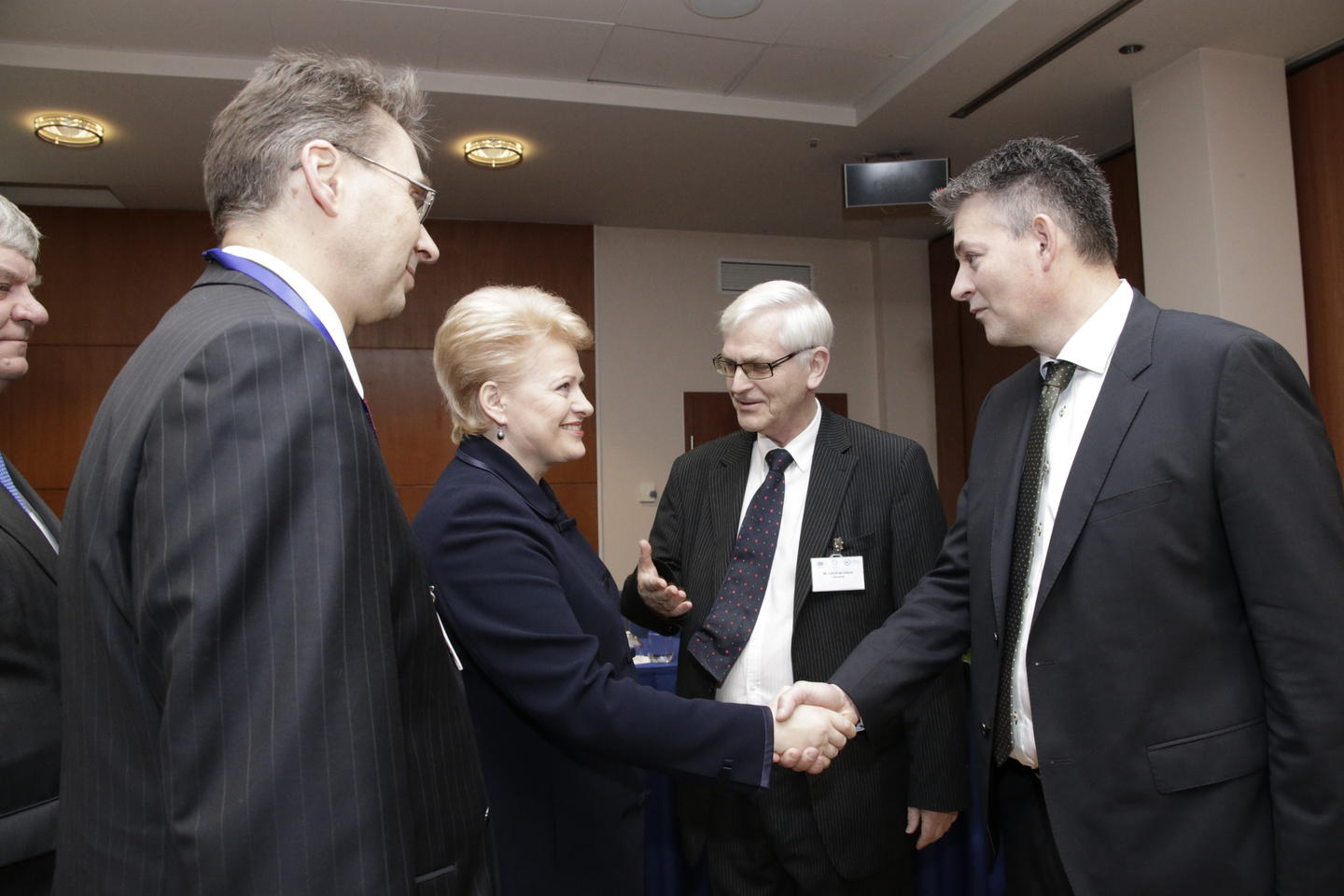Gender equality in science remains a major challenge that impedes efforts towards creating competitive, research and innovation-based economies throughout Europe and beyond. Despite strategies promoting gender equality, European research continues to suffer due to considerable loss and inefficient use of highly skilled women. Identifying the core problems obstructing positive change, sharing good practices and discussing specific measures to rectify the current imbalance were all issues discussed at the international conference ‘Structural Change Promoting Gender Equality in Research Organizations’ in Vilnius on November 21-22.
Good practice from Iceland and Norway
The conference, organized by Vilnius University and co-funded by the European Commission, was included in the Lithuanian EU Council Presidency program. The conference is a part of the ongoing project ’Gender Equality Implementation in Research Institutions: Collaborative Approach’ funded under the EEA Grants and Norway Grants National Bilateral Fund in Lithuania.
Based on good practices of Iceland and Norway, the project aims to develop mechanisms of “cooperative approach” for collaboration among scientists, high level executives of research institutions and science policy making bodies and use them to support implementation of gender mainstreaming policy in science in Lithuania and other countries participating in running European regional programs. Norwegian University of Science and Technology (NTNU) and the University of Iceland are partners in the project.
Balance important for competitiveness
As a patron of the event, the President of the Republic of Lithuania H. E. Dalia Grybauskaitė opened the conference by noting that balanced representation of women and men in all fields of research is needed for the enhancement of European competiveness and better realization of the European innovation potential.
State Secretary Bjørn Haugstad of the Norwegian Ministry of Education and Research delivered a welcome address at the conference. The State Secretary remarked that failing to make full use of the population potential is detrimental to economies and societies in general and to research organizations in particular. He emphasized the importance of policy and the role of leadership, sharing some experiences and good practices from Norway.
Over 200 participants took part in the conference, including scientists, representatives of research institutions and universities, public and private research funding agencies from all over Europe. The conference agenda included discussions on the work of the Norwegian Committee for Gender Balance in Research and the experience of making academic leadership more gender aware based on the experience of the Norwegian University of Science and Technology.
For more information about the conference, see http://www.sapgeric.eu2013.vu.lt/.
